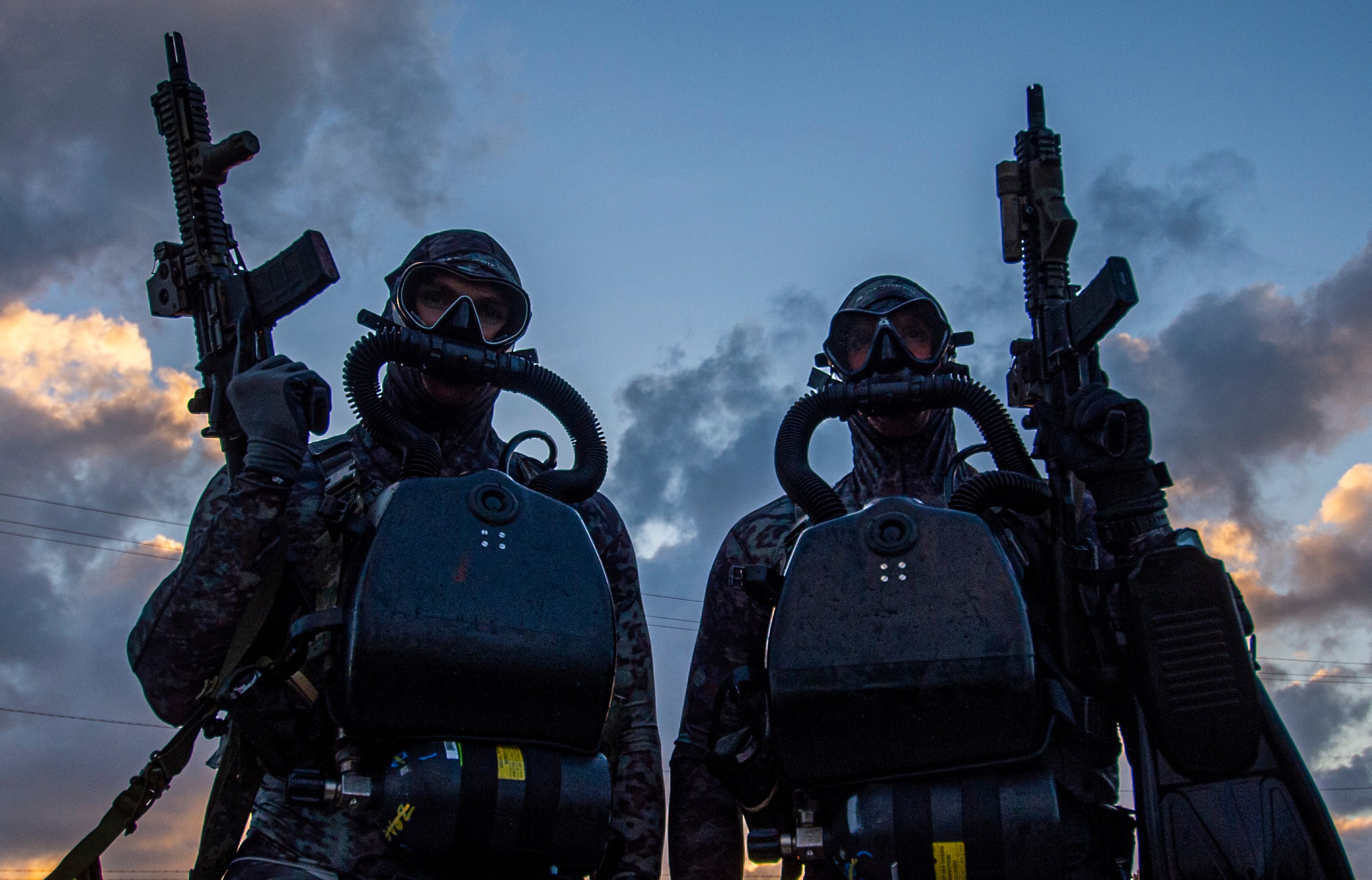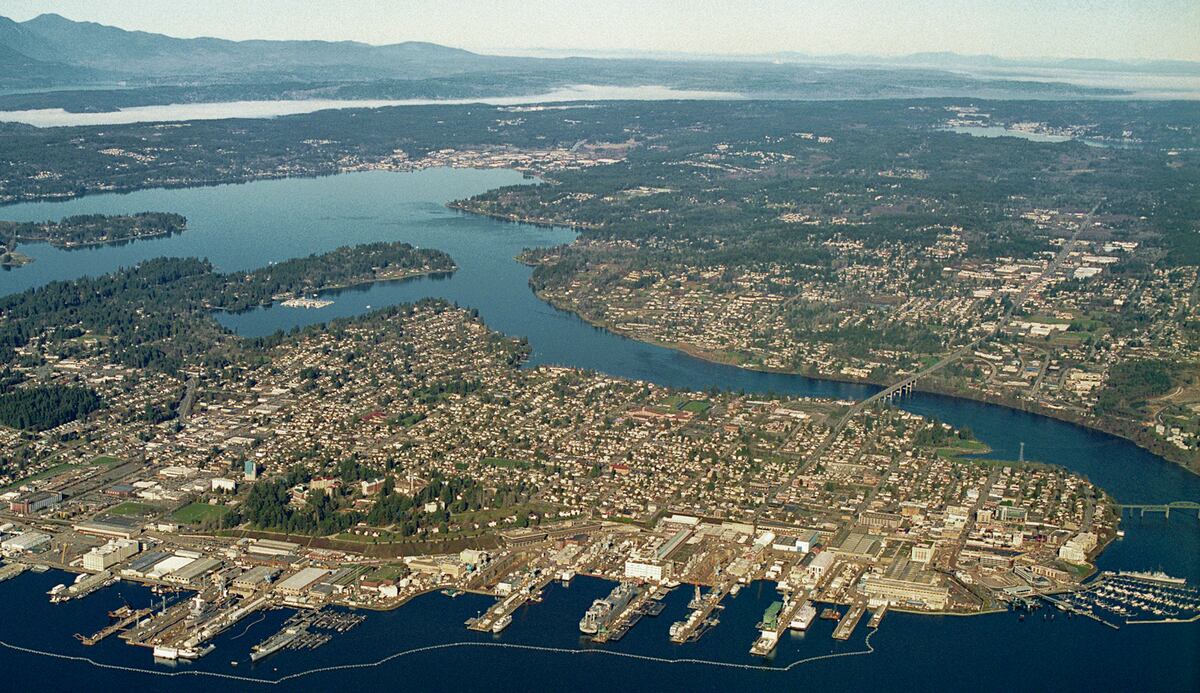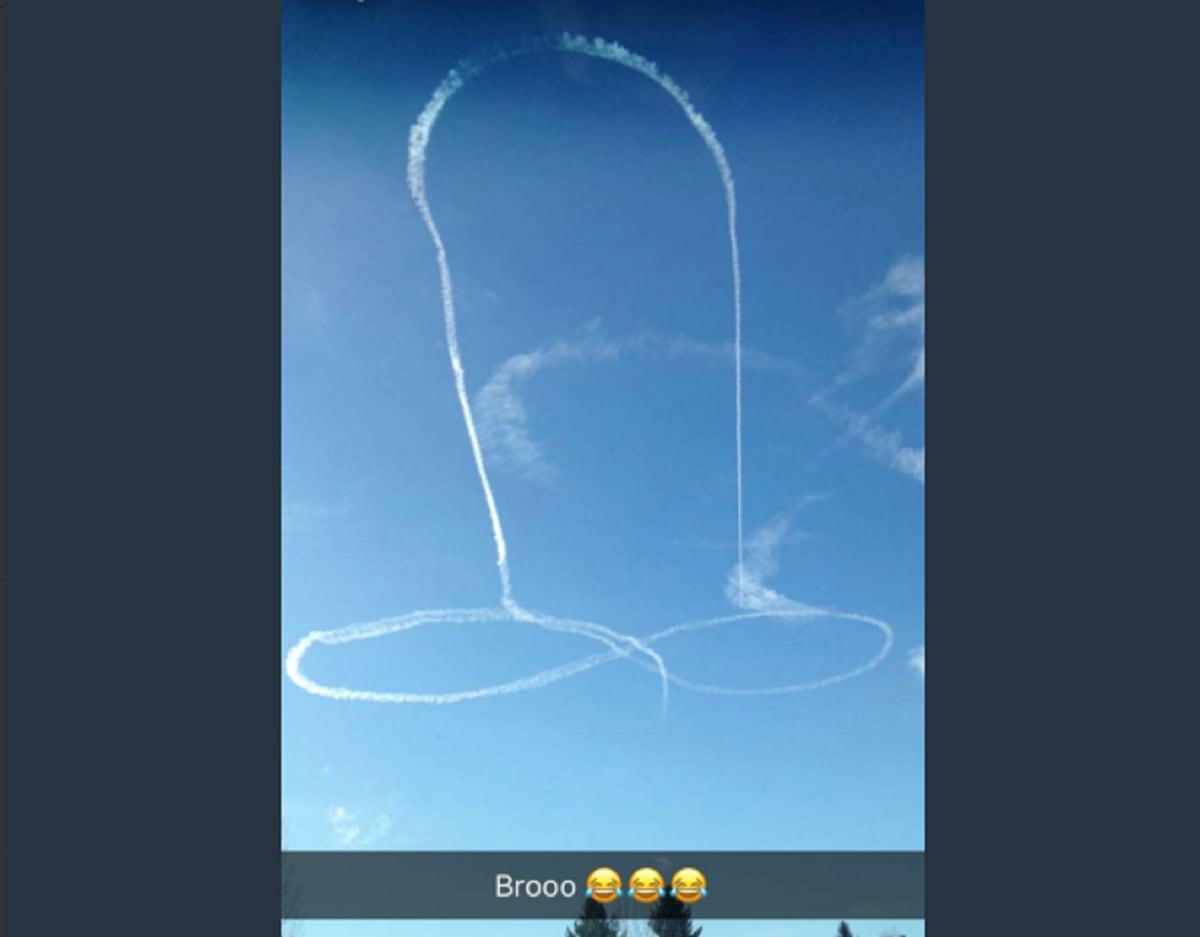Count Navy SEAL training as another military activity hobbled by the COVID-19 pandemic.
SEAL teams have for decades trained in the verdant wilds of western Washington state, practicing beach landings, stealth reconnaissance and other critical cold-water operations.
Earlier this year, before the novel coronavirus took over American life, the Navy brought a proposal to the state that would greatly expand the number of state parks where SEALs could train, from five parks to 29.
Such training irks some locals and advocacy groups. Washington State Parks and Recreation Commission hearings on the matter tend to attract crowds who voice concerns about the special operators creeping around on public lands and watching them from hidden positions.
As part of an effort to curb large gatherings that can spread the virus, the commission has paused such public hearings, and the Navy’s latest proposal has been shelved for the foreseeable future.
RELATED

At the same time, the commission declined a request this spring to extend the Navy’s most-recent permit to allow the SEAL training to continue, so the elite force has been without Washington state parks to train in since April.
“This item has high public interest and we anticipate a large number of people will attend in person when this topic is before the commission,” the commission’s website states. “With public safety in mind, the commission plans to hold a public meeting on this topic later in the year when it is safer to accommodate large groups of people. We expect to make a decision on the Navy’s application at a regularly scheduled meeting in late 2020 or early 2021.”
Navy officials say they have held several public outreach meetings and open houses to educate and assuage public concerns.
SEALs need multiple western Washington sites that can account for seasonal changes, honing of different skill sets and other considerations, Navy Region Northwest spokesman Sean Hughes said.
“This is their advanced training in really challenging environments,” he said. “We put them in harm’s way, and we owe them the best training we can give them.”
Naval Special Warfare Command “does not anticipate disruptions to the community or the environment” from the training, Hughes said.
“As part of the rigorous training, the trainees learn skills needed to avoid detection with the goal of leaving no trace of their presence during and after training activities,” Hughes said.
At the same time the Navy has reached out to area municipalities and private property owners to obtain permission to train on those lands and waters, he said.
But the sea service’s outreach efforts have done little to reassure local activists who are concerned about SEALs maneuvering and hiding in state parks, and who also worry about an expanded Navy presence in the Pacific Northwest overall.
RELATED

“They land SEALs on the beach, go hide in the bushes and surveil whatever happens in the parks,” Larry Morrell, an area activist and member of the Whidbey Environmental Action Network and other activist groups, told Navy Times. “Anyone wandering by … are being observed and potentially there could be some sort of conflict.”
Morrell said he particularly worries about an armed civilian coming upon men hiding in the woods and a misunderstanding taking place.
He points to a 2002 incident in North Carolina where a sheriff’s deputy fatally shot a Green Beret and wounded another soldier during a field exercise that spanned nine counties.
The deputy was unaware that the training was taking place, CNN reported at the time.
“In this day and age, where you never know who’s got what kind of weapon on them … there could be some very dire consequences,” Morrell said.
The state commission’s website states that it is “not aware of any conflicts between the Navy and the public during training in Washington state parks,” and that “the Navy has protocols in place to stop exercises if a member of the public enters the training area.”
RELATED

Morrell said he was not aware of any local incidents were civilians have encountered SEALs training in the state parks and said he understands why the training is necessary.
“Folks understand that SEALs need to be trained,” he said. “We’ve got a very diverse shoreline, different things we’re trying to protect.”
Morrell said he wants to see more transparency from the service and guarantees that they are not harming the environment.
“There’s a solution here, but it involves a Navy change of attitude,” he said. “They think we’re the enemy, but we could be their friends. It’s a missed opportunity, in my book.”
Geoff is the managing editor of Military Times, but he still loves writing stories. He covered Iraq and Afghanistan extensively and was a reporter at the Chicago Tribune. He welcomes any and all kinds of tips at geoffz@militarytimes.com.




